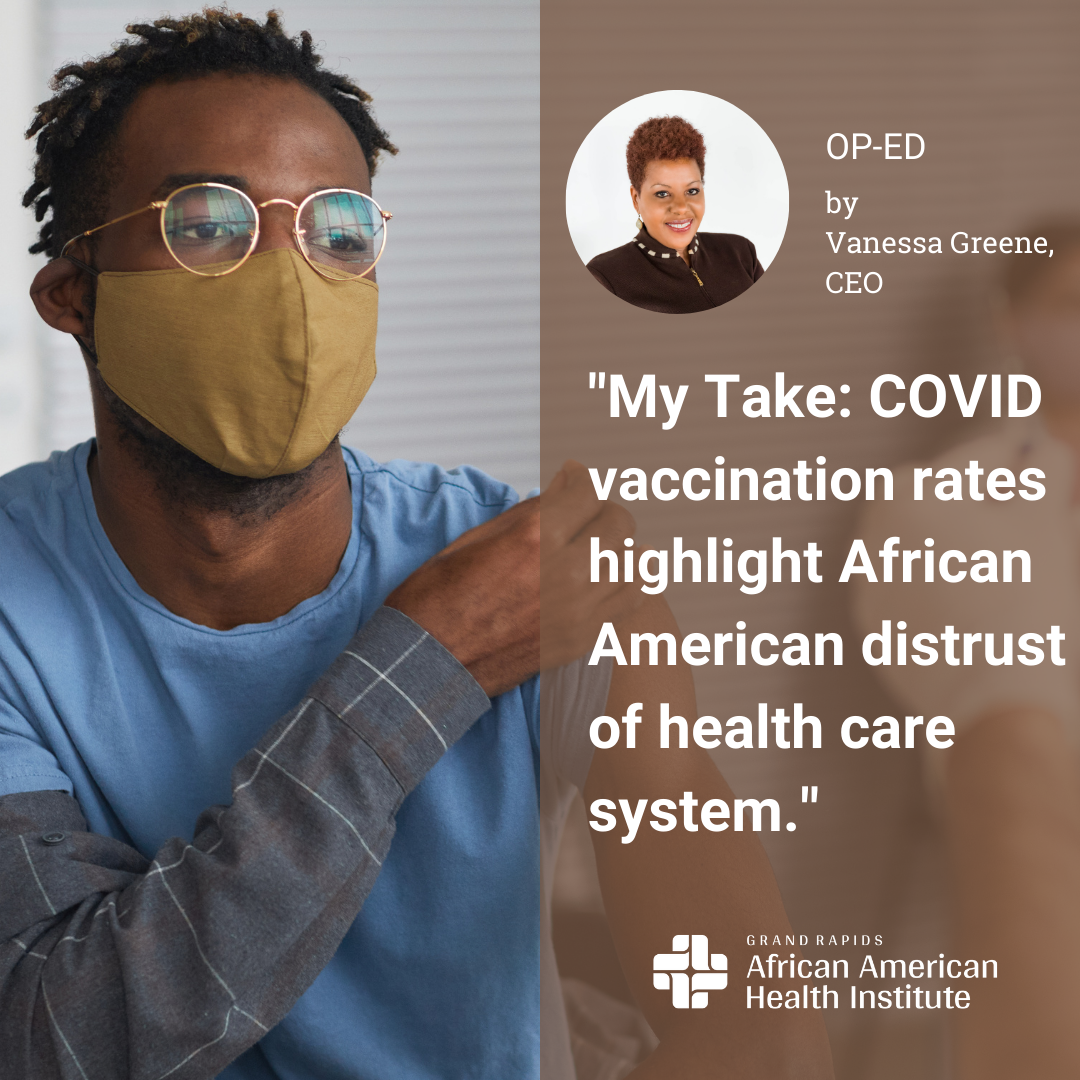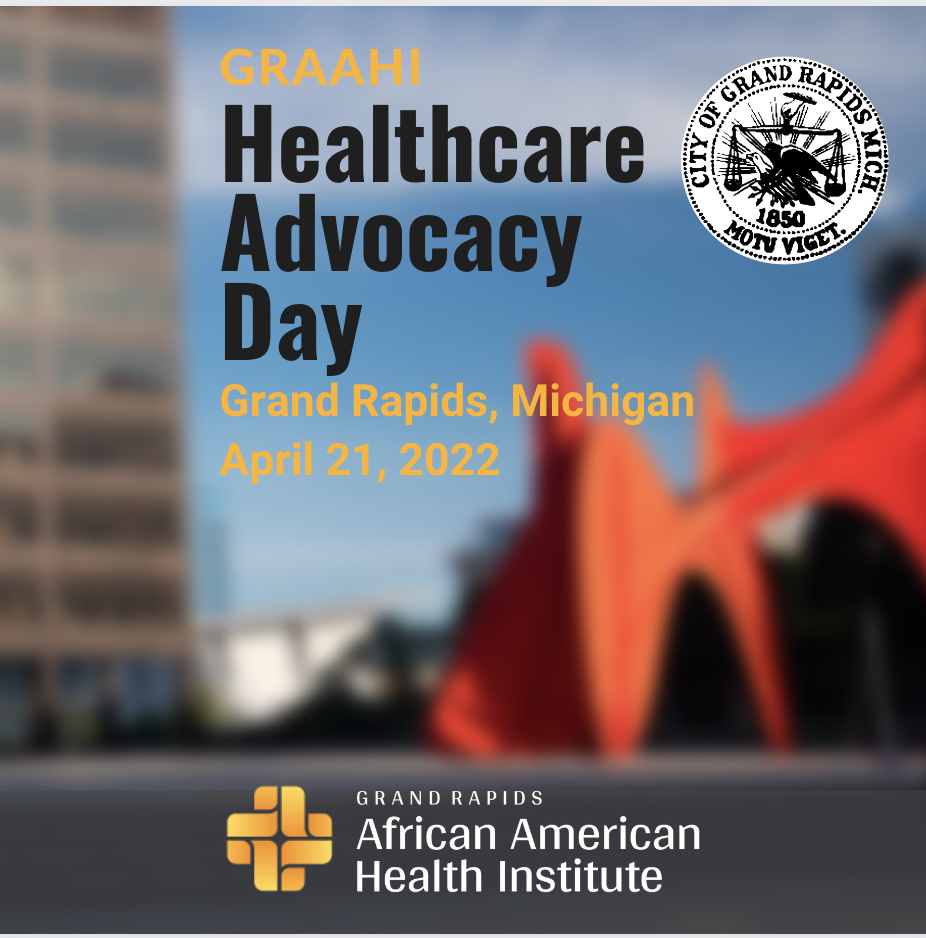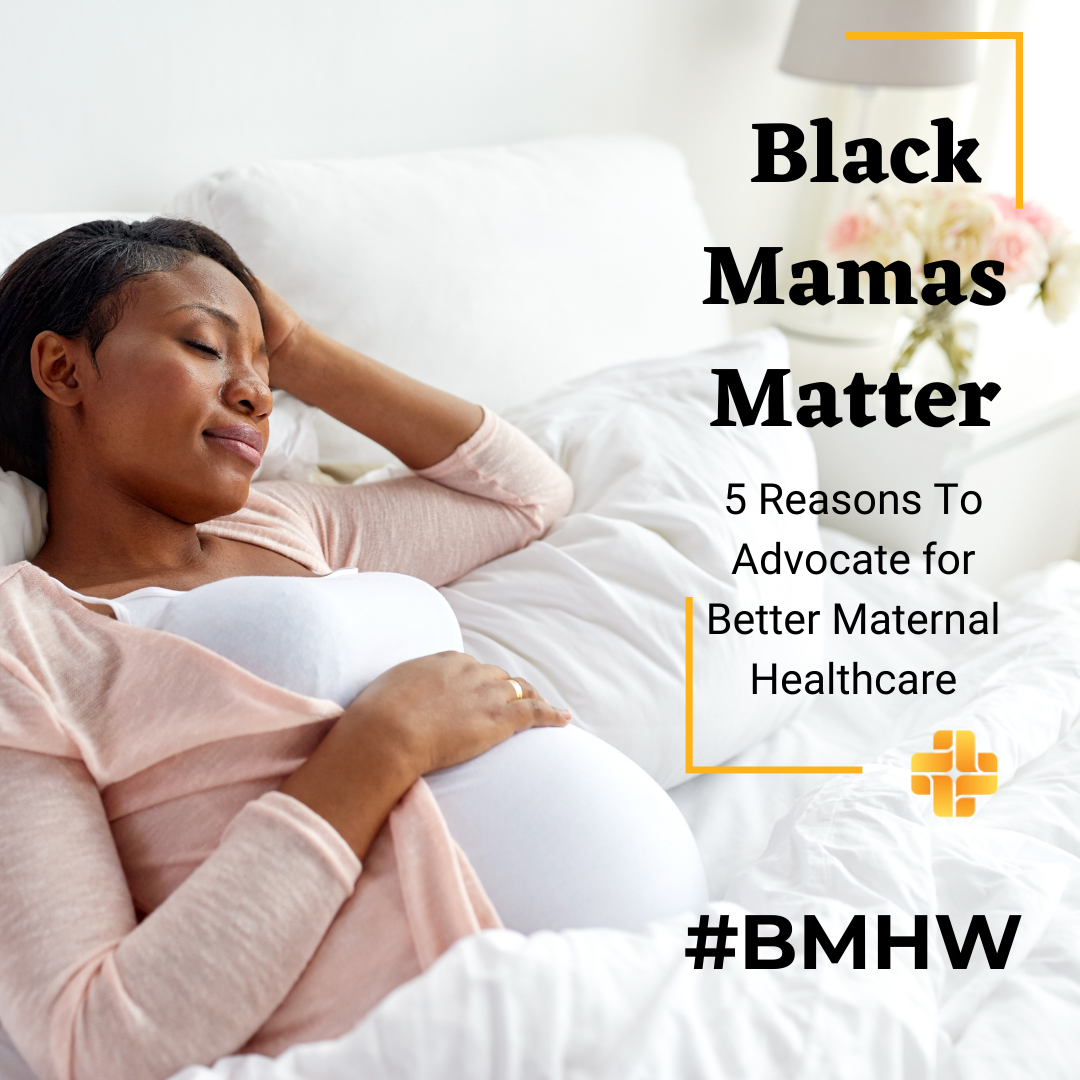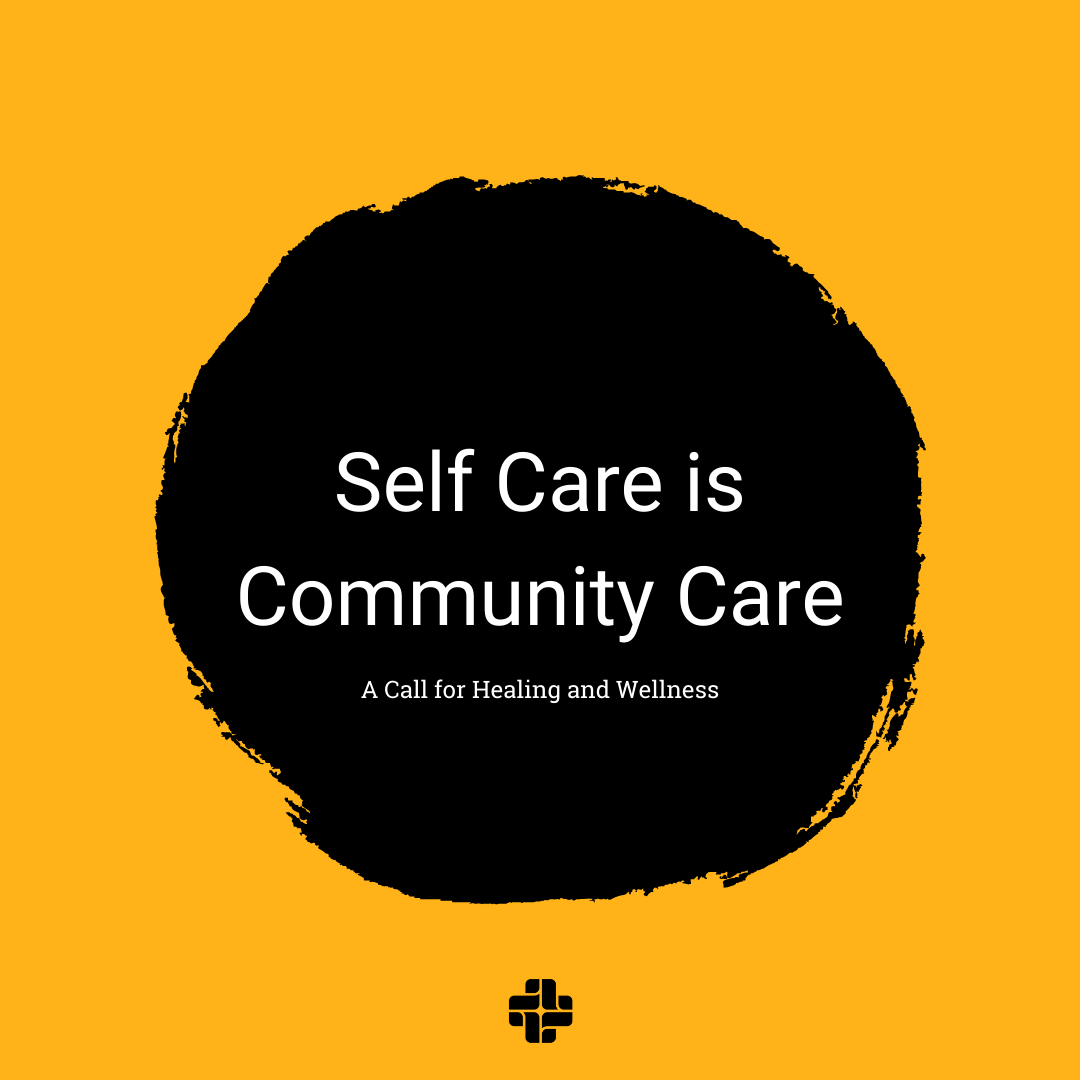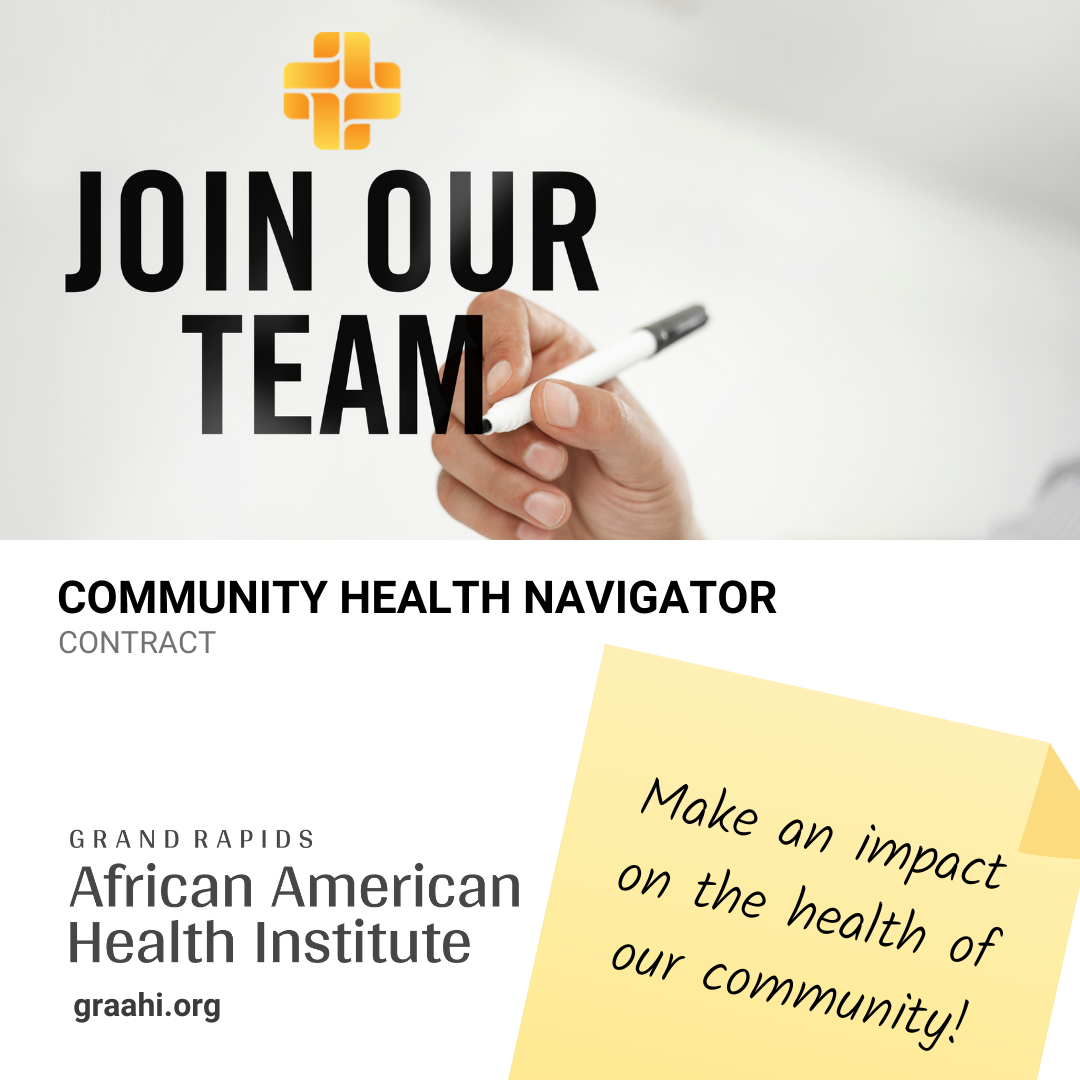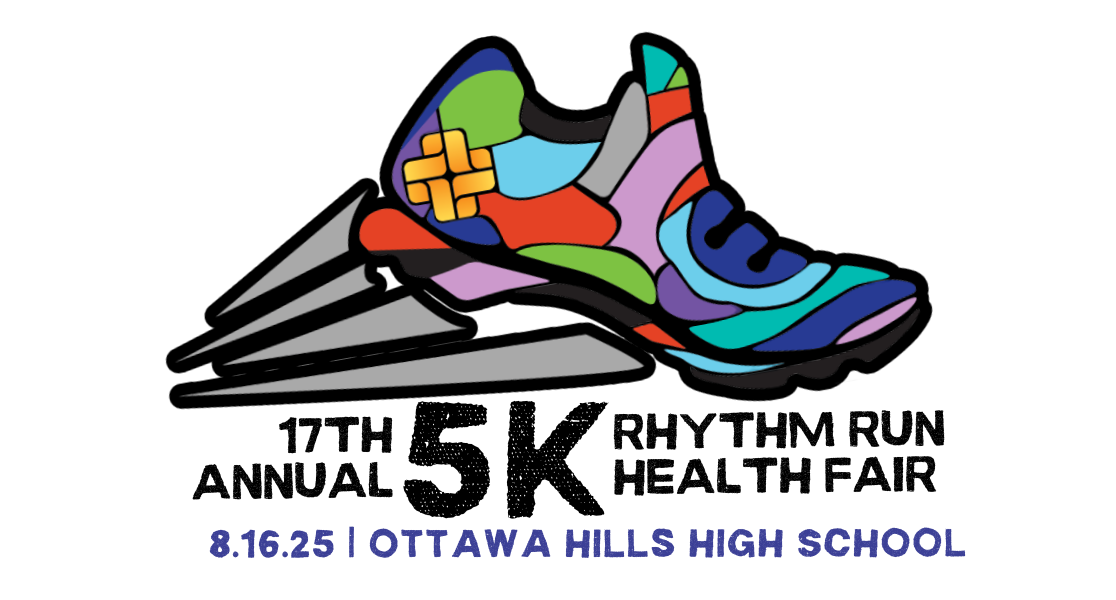Grand Rapids African American Health Institute
As COVID-19 restrictions are lifted, the future health of Michigan residents will rely in large part on the percentage who are vaccinated against the virus. Unfortunately, that number remains low among African Americans. In Michigan, only 44 percent of the African American population has received a COVID-19 vaccine dose, among the lowest rates in the country.
The answer to why is multi-factored, but a large part is general distrust of the health care system by many African Americans — distrust formed over time due to a long history of inequities and mistreatment. We must become more intentional about making changes, both immediately and over the long-term, so African Americans have better experiences in their health care journey and their level of trust in the system grows.
Although COVID vaccination may be the topic of the day, this distrust impacts African American health care in many ways beyond the virus. For example, African Americans have the highest death rate and shortest survival of any racial/ethnic group in the United States for most cancers. Diabetes, HIV/AIDS, asthma, obesity, and Alzheimer’s also appear at higher rates in people of color when compared to whites.
Longstanding systemic inequities and structural racism are disproportionately harming communities of color. Studies show that physicians spend less time with African American patients, and when they are seen, concerns are more often dismissed or ignored. Communities of color are more likely to live in poverty and in areas with high pollution, substandard education and housing, and fewer health care facilities.
Another area where disparities stand out for African Americans is maternal health care. In Michigan, African American women die of pregnancy-related causes in 41 out of 100,000 live births, compared to 15 in 100,000 live births of white mothers. African American babies also die at a rate 3 times higher than white babies. In Kent County, African American infants are 2.5 times more likely to die before age 1 than white infants, and 2.2 times more likely to have low birth weights. At the root of this issue, studies show that pregnant African American women are often ignored by their doctors when discussing possible complications of their pregnancy.
Unfortunately, the distrust in the health care system caused by these and other inequities will lead to further health disparities in the future, as African Americans will be less protected against COVID.
African Americans currently make up 18 percent of all COVID deaths in Michigan, a disproportionate number compared to population, and many more will suffer from long-term impacts, especially since COVID is more dangerous to people who have co-morbidities such as heart disease, diabetes and obesity, which appear in African Americans in higher rates due to past inequities.
The Grand Rapids African American Health Institute’s (GRAAHI) “United Against Covid” campaign is working directly with African American communities to promote vaccinations and other preventative health care measures. We have clinics set up throughout Kent County in Grand Rapids, Kentwood and Wyoming, and with vacations and travel increasing, it is all the more important for people to get vaccinated. Many people believe that those who want to get vaccinated have already done so, but we do not accept this to be true and will continue to provide every opportunity possible for people to get vaccinated. You can learn more about GRAAHI’s vaccination clinics at graahi.com/getvaccinated.
But we can only do so much as one organization. Our elected leaders must prioritize policies that recognize the impact of social determinants on diverse populations and seek to remedy key factors that help lead to inequities, solving the problem at its source. Advocacy, community education and research must all be key components of these efforts. Finally, the lack of diversity in the medical field is another issue that can be addressed. Only 6.2 percent of nurses and 5 percent of doctors identify as African American. The role of African American health care providers is critical, as more diversity on health care teams can play a key role in lowering the level of distrust. At GRAAHI, we work with Michigan universities to improve the pipeline of African American medical professionals in our state, and we need elected officials to make this a priority as well.
Although we have made progress, we are dealing with a system that has been broken for centuries. It is time to recognize the magnitude of this problem and come together at the community and governmental levels to break this vicious cycle. Through our combined efforts, the future can be much brighter. Vanessa Greene is CEO of the Grand Rapids African American Health Institute, an organization devoted to achieving healthcare parity for African Americans and ensuring all people have optimal health care and benefit from health systems without race being an impediment.
In the Media:
https://www.hollandsentinel.com/story/opinion/columns/2022/04/22/my-take-covid-vaccination-rates-highlight-african-american-distrust-health-care-system/7371611001/
and
https://www.cheboygannews.com/story/opinion/columns/2022/04/22/my-take-covid-vaccination-rates-highlight-african-american-distrust-health-care-system/7371611001/



